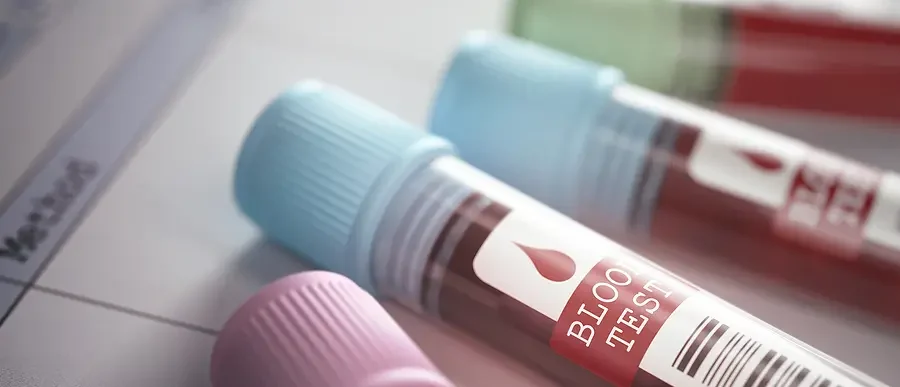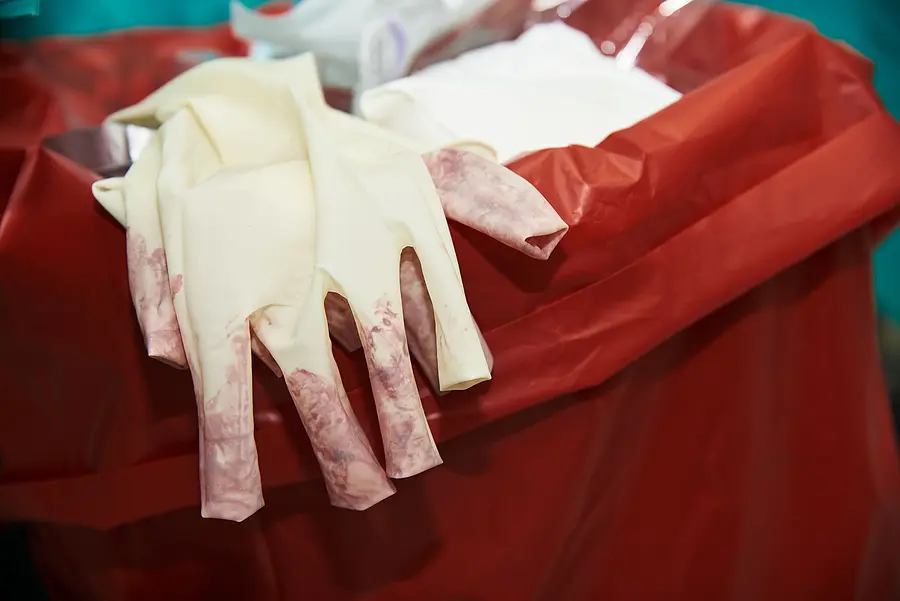Guide to Disposing Materials Contaminated With Blood

Blood and materials contaminated with blood create a health risk because of the harmful pathogens that may be present. You should treat all blood waste carefully and with the proper procedures to prevent exposure to disease. If you are exposed to bloodborne pathogens, you can contract serious and life-threatening illnesses.
How to Classify Blood Waste

Medical waste breaks down into categories. Segregating waste ensures proper treatment and safe disposal to prevent injury, environmental damage, and the spread of disease.
Blood waste – blood, blood products, or materials contaminated with blood that can be poured, dripped, or flaked off – falls into the regulated medical waste (RMW) category. This type of waste contains infectious or potentially infectious substances that local, state, and federal guidelines regulate.
Here are some examples of blood waste:
- Blood-soaked gauze or bandages
- Bloody gloves or other PPE
- Blood in tubes or suction canisters
- Needles, syringes, scalpels, or dental carpules containing blood
- Pathological and microbiological wastes containing blood
When determining if your materials are RMW, consider their potential to release blood rather than the volume of blood. Materials in the garbage are often compacted and the release of blood poses a significant health risk for janitorial and waste workers.
You must handle, manage, and dispose of RMW following the Occupational Safety and Health Administration’s (OSHA) Bloodborne Pathogens Standard and Standard Precautions to maintain legal compliance and health safety.
The Consequences of Improper Disposal
Violations of the Bloodborne Pathogens Standard are evaluated on a case-by-case basis. If evidence supports a violation, a citation and monetary penalties can be issued. All companies and organizations are responsible for employee and customer safety when it comes to biohazard exposure. In addition, human health is at serious risk if you don’t take the proper precautions.
How to Dispose of Materials Contaminated With Blood
Safe disposal begins with the generation of blood waste. Personal protective equipment (PPE) should be available when handling blood and bodily fluids. You should write an exposure control plan and communicate it to anyone handling blood or blood-contaminated materials, before handling. In the event of an exposure, you should document an evaluation and follow-up, as well as a hepatitis B vaccine you offer the individual.
Safe Handling, Storage, and Disposal
You should implement standard precautions while handling blood and other potentially infectious materials (OPIMs). Place all materials in FDA-approved waste containers that are puncture-proof, spill-proof, and include a locking lid. Attach warning labels to containers holding RMW; including sharps containers, refrigerators and freezers containing blood, and bags of contaminated laundry. Containers should be stored in a safe location away from the public.
Blood-contaminated materials can be treated by various methods to kill pathogens. Incineration, autoclaving, and microwave treatments sterilize and/or destroy materials. Then, any remaining waste goes to a landfill after treatment.
Employee Training
Ongoing employee training is key to maintaining compliance and safety when handling blood. Annual training fulfills mandatory regulations and keeps employees up-to-date on best practices.
Medical Waste Disposal Services
Professional medical waste management services ensure that they dispose of your blood waste properly. Licensed disposal companies offer training options and safe pickup, transportation, and disposal of your medical waste. A regular pick-up schedule prevents an accumulation of waste, and accidental spills, and minimizes the risk to your community.
Schedule Regulated Waste Disposal Services Today
Medical Waste Pros offers reliable disposal services for blood waste of all kinds. Our services comply with OSHA Standards, as well as local and federal laws. Give us a call at (888) 755-6370 or fill out the form to learn more about our options. We will instantly connect you with disposal companies in your area.










